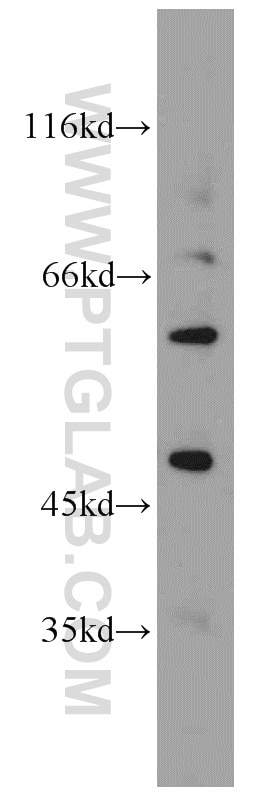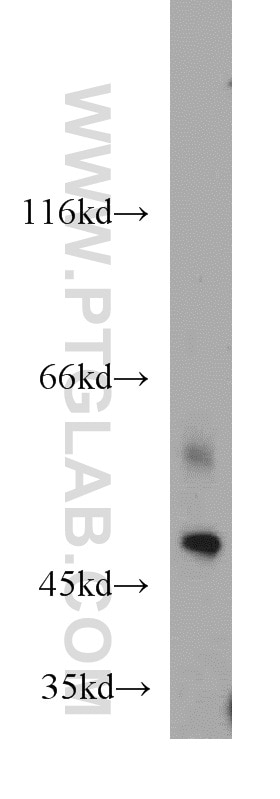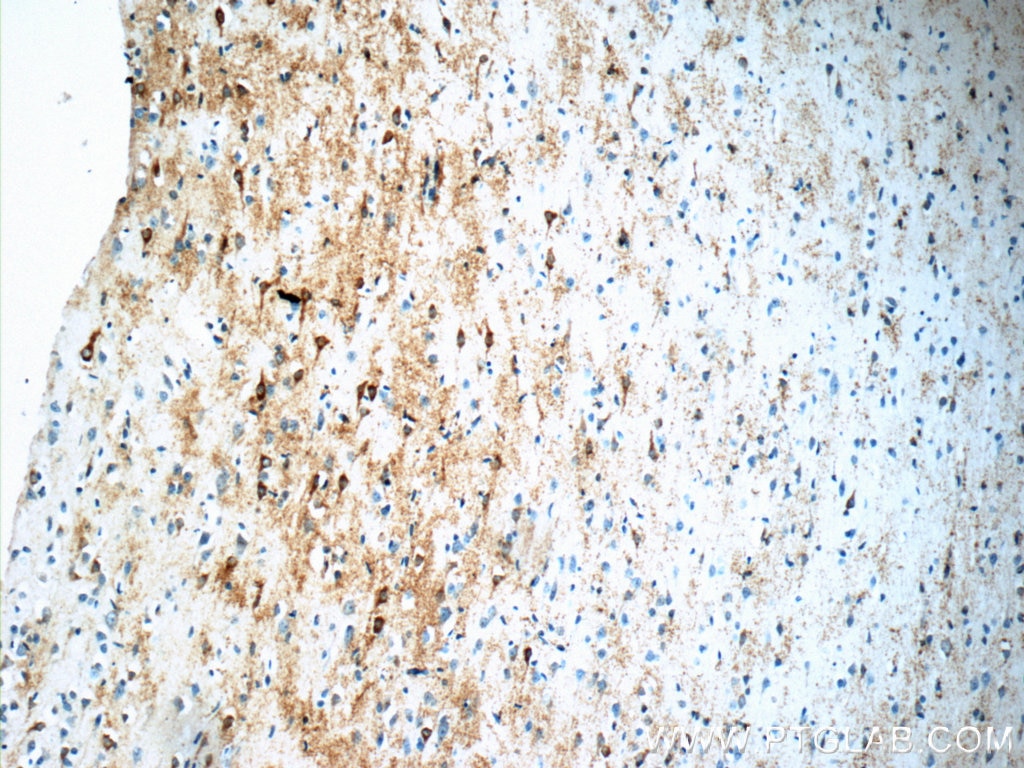Product Information
19965-1-PBS targets Kir2.1 in WB, Indirect ELISA applications and shows reactivity with human, mouse, rat samples.
| Tested Reactivity | human, mouse, rat |
| Host / Isotype | Rabbit / IgG |
| Class | Polyclonal |
| Type | Antibody |
| Immunogen | Peptide Predict reactive species |
| Full Name | potassium inwardly-rectifying channel, subfamily J, member 2 |
| Calculated Molecular Weight | 48 kDa |
| Observed Molecular Weight | 50 kDa, 60 kDa |
| GenBank Accession Number | NM_000891 |
| Gene Symbol | Kir2.1 |
| Gene ID (NCBI) | 3759 |
| RRID | AB_10859827 |
| Conjugate | Unconjugated |
| Form | Liquid |
| Purification Method | Antigen affinity purification |
| UNIPROT ID | P63252 |
| Storage Buffer | PBS only, pH 7.3. |
| Storage Conditions | Store at -80°C. |
Background Information
KCNJ2, also named as HHBIRK1, HHIRK1, IRK1, KIR2.1, LQT7 and SQT3, belongs to the inward rectifier-type potassium channel family. KCNJ2 probably participates in establishing action potential waveform and excitability of neuronal and muscle tissues. Inward rectifier potassium channels are characterized by a greater tendency to allow potassium to flow into the cell rather than out of it. Their voltage dependence is regulated by the concentration of extracellular potassium; as external potassium is raised, the voltage range of the channel opening shifts to more positive voltages. The inward rectification is mainly due to the blockage of outward current by internal magnesium. KCNJ2 can be blocked by extracellular barium or cesium. Defects in KCNJ2 are the cause of long QT syndrome type 7 (LQT7). Defects in KCNJ2 are the cause of short QT syndrome type 3 (SQT3). The antibody recognizes the C-term of KCNJ2.







